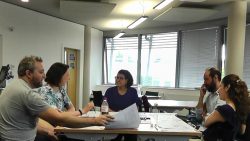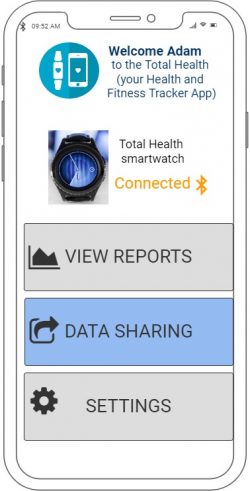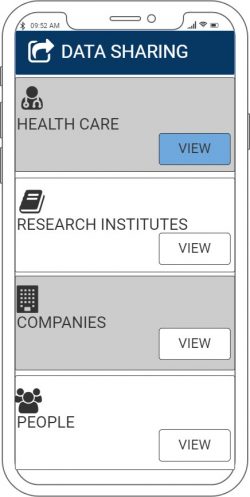Data privacy and potentials of data use in wearable technologies
Have you ever wondered what happens with the personal data that wearable devices such as fitness trackers collect? Where it is sent and what could be the potential for enhancing health services using this data? Have you ever scrolled through a privacy policy without understanding what the pages of text actually allow a company to do with information about you?
In this PhD project, Elaine is conducting workshops with the support from ReEntrust project team to explore people’s views and perceptions regarding data sharing, and the potential data privacy issues that may arise in data collected through wearable devices.

Figure 1 – Participants and Elaine engaging in the discussion
This project aims to explore the factors relating to the acceptance of ubiquitous technologies to support their design with the focus on older adults. The contribution of this study is to explore potential factors in accepting and using ubiquitous technologies, and how these could have an impact in enhancing the services on health and well-being.
Findings from Elaine’s previous research have revealed factors that promote and factors that restrict the use of data collected through wearable devices regarding protection, fairness, accuracy and traceability. These factors result in concerns regarding data privacy and consequently, a breakdown of trust – for instance the user sometimes doesn’t know when to trust, doesn’t see reciprocity and/or benefits for the data being collected, used and/or shared.
In this context, the main topics we are exploring during the workshops are:
- What are the user expectations and requirements regarding the balance between received personalised services and the use of the data collected by sensor-based devices?
- What is the impact of privacy in the acceptability of data collection and data sharing? How does it influence user wellbeing and agency?
- What would be useful to enhance trust in the use of the data and data sharing by the user? How should these issues be addressed?
During the workshops, we will present a series of screenshots from our prototype (see Figure 2 and Figure 3 below) to encourage discussion relating to the topics above.

Figure 2 – Menu principal from the prototype

Figure 3 – Data sharing options from the prototype
The results from the workshops are going to help Elaine to design a user interface from low-fidelity to a high-fidelity prototype, helping to inform designers how to use and deliver the information collected by wearable devices in a trusted and engageable way to the user — taking into account the user’s privacy, the transparency and fairness in the transaction.
This research is part of a PhD research project being supervised by Professor Derek McAuley and Dr Joel Fischer and the workshops are being supported by ReEntrust’s project team.
For more information, please get in contact with Elaine Venancio Santos
School of Computer Science Ethics Reference: Ref. no. CS-2018-R53
















